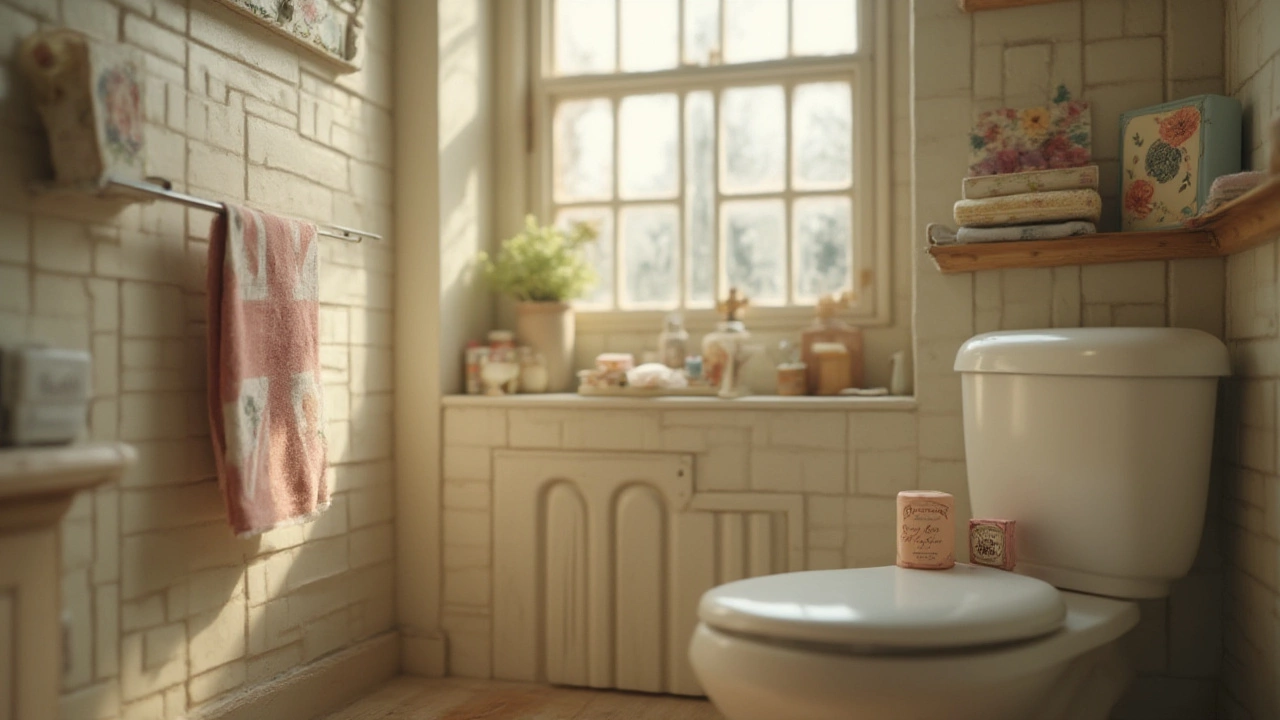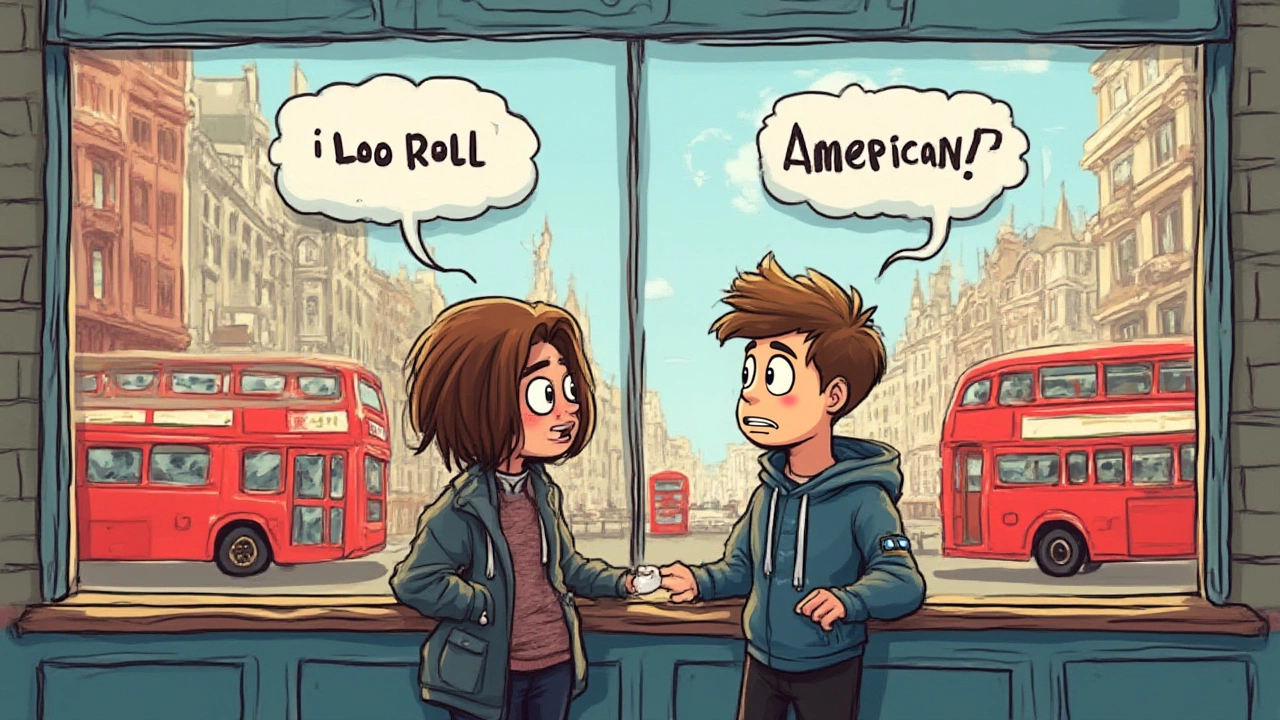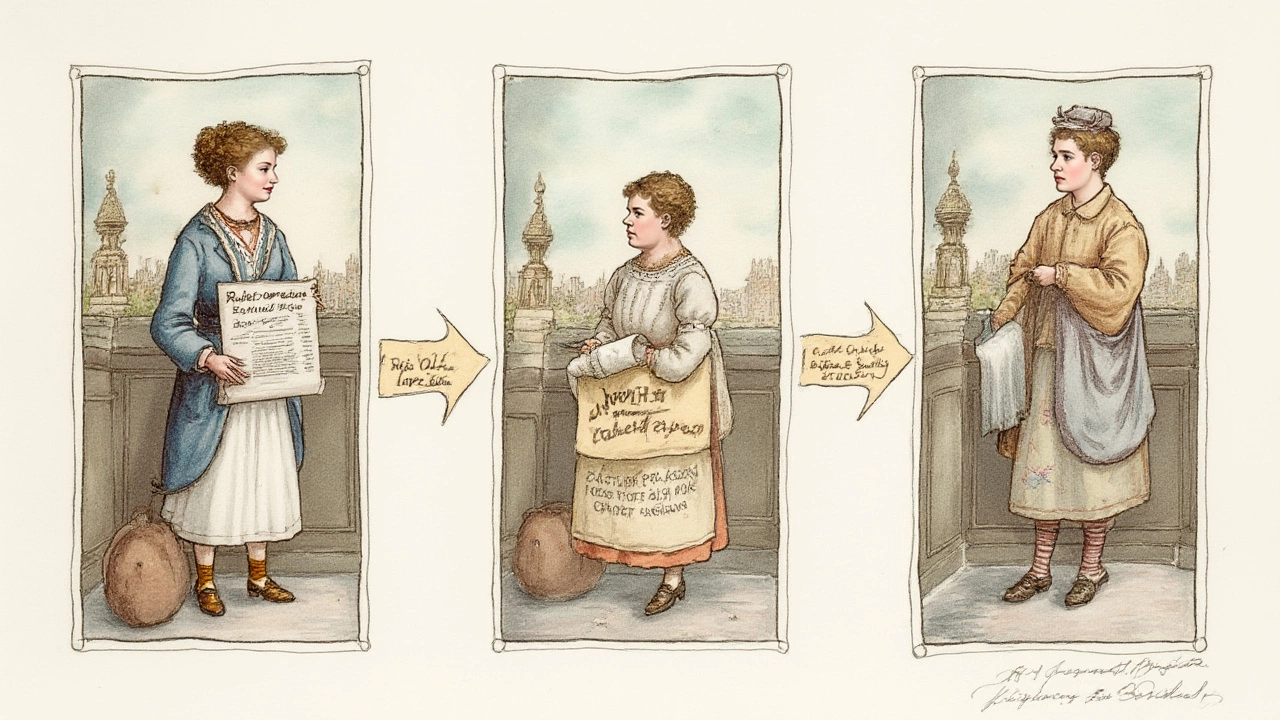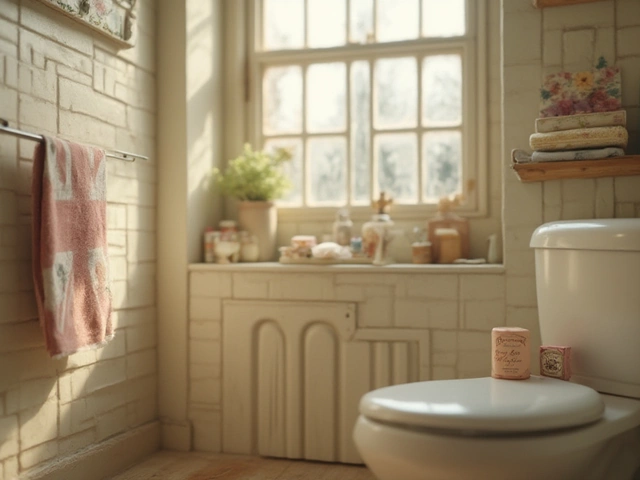
Ever been in a British supermarket, gawking at a shelf packed with white rolls, only to hear someone ask, “Can you grab some loo roll?” For an American, this can be a head-scratcher. The British are pros at renaming everyday objects – nappies for diapers, crisps for chips, and yes, loo roll for toilet paper. The words might sound funny at first, but once you get the hang of it, it’s surprisingly handy when you’re out and about in the UK, especially if you’ve got kids like Orla and Tegan who always seem to need the loo at the least convenient times.
The Most Common Names: Loo Roll, Toilet Roll, and More
Travel across the UK and you’ll notice toilet paper goes by several names. The hands-down favorite? Loo roll. You’ll hear it in supermarkets, advertisements, and that classic phrase from frazzled parents: “Has anyone checked if there’s any loo roll left?” Some folks shorten it further to “roll,” particularly in more informal chatter. In more formal settings or hotel bathrooms, “toilet roll” appears on the packaging or even on neat little signs asking guests to put finished rolls in the bin. The word “toilet paper” does exist, but you won’t hear it that often unless you’re reading an instruction leaflet, maybe at a museum or in a guide for overseas students.
Then there’s “bog roll.” This one’s rooted in British working-class slang. The word “bog” for “toilet” can sound a bit crude to some ears, but it’s widely understood from Cornwall right up to Newcastle. I’ve heard plenty of dads, usually holding pliers or doing DIY, yell, “Who’s nicked the bog roll?” It’s a bit cheeky, but it fits right in with British humor. In pubs and building sites, you’ll catch this phrase more than anywhere. My kids giggle every time we pass an aisle full of the stuff, with Orla whispering, “bog roll!”
Another quirk: you might see “bathroom tissue” on imported American brands at specialty stores. Brits might give you a puzzled look if you use this. In the UK, the term sounds almost comically posh and roundabout. Stick with loo roll or toilet roll, and you’ll fit right in.
The vocabulary isn’t random. Brits are masters of understatement and practical language. Calling it “loo roll” puts the focus on its use – for the loo. And “roll” is just a factual nod to the stuff’s cylindrical shape. Simple, right?

How British Bathroom Talk Reflects UK Culture
How we talk about toilet matters gives away more about British society than you’d think. There’s always a touch of embarrassment around bodily functions – a cultural hangover from Victorian etiquette, perhaps. Brits love euphemism and understatement, and that’s clear in all the different words for the most basic products. Toilet paper itself was a huge innovation: before its arrival in the UK (the late 1800s), people used all sorts, from newspaper to leaves to, weirdly enough, old book pages. The phrase “bumf” actually comes from “bum fodder,” an old slang for paper you’d wipe with. Makes you glad for those neat, perforated rolls, doesn’t it?
Let’s look at the numbers for a moment. On average, a British household uses about 127 rolls per person every year—one of the highest rates in Europe. That’s about 8 to 10 sheets each visit, though my daughter’s attempts to ration sometimes end up with the whole roll spinning onto the floor. It seems simple, but access to clean, soft toilet paper is a bit of a modern miracle. During the first lockdowns back in 2020, loo roll shortages made headlines and brought out British queuing discipline in its full glory. A funny moment, but it got everyone thinking about what we’d do without it. Spoiler: Many old Brits remember using newspaper cut into squares hanging from a hook. The Times was apparently the best for the job.
Regional accents and humor play a part, too. In Scotland, you might hear “cludgie roll,” with ‘cludgie’ being an old Glaswegian word for the toilet. In the north of England, “lavvy paper” pops up. And let’s not forget the endless puns—when you’ve got so many words for the same thing, there’s always room for a joke. My mate from Liverpool swears by “jacks roll,” a name almost extinct now but still hanging around in some old pubs. People love their tradition here, even for such an everyday item.
Brits also take pride in their bathroom humor and creativity in advertising. Who could forget the Andrex puppy commercials? That Labrador rolling down a corridor trailing toilet roll is forever seared into British TV history. It turned the humble loo roll into something soft and playful rather than strictly practical. According to a survey by Statista in 2023, Andrex remains the most popular household brand, with 41% market share, followed by Cushelle and Tesco’s own brand. Supermarkets often have their shelves packed top to bottom, and you’ll catch deals labeled “family pack” or honestly, “giant rolls.” In the Gladesdale home, we stock up like there’s a blizzard coming every half term—because, trust me, if you run out, you’ll never hear the end of it from the kids.

Tips for Navigating British Bathrooms and Loo Roll Etiquette
Visiting the UK or living here as an expat? If you don’t want to get caught out, there are a few things to know about British bathrooms and loo roll habits. First, public toilets sometimes don’t supply any paper at all, especially in older buildings, schools, or rural train stations. Always check your stall before sitting down. My girls have learned to spot whether there’s enough roll left before settling in—a life skill, if you ask me.
When staying at someone’s house, don’t be shy about asking where the spare loo roll is kept. Most Brits have a little basket or stack under or beside the sink. Running out and having to do the awkward waddle—pants at ankles—is nobody’s favorite memory. I’ll never forget Tegan’s shout of “Dad, bring loo roll!” echoing through a friend’s house at a birthday party. Instant classic.
Here’s a handy conversion table to help make sense of the different terms you’ll hear:
| Phrase | Meaning | Where You’ll Hear It |
|---|---|---|
| Loo roll | Toilet paper | Everyday British English everywhere |
| Toilet roll | Toilet paper (formal/retail) | Packaging, formal settings |
| Bog roll | Toilet paper (slang) | Pubs, building sites, informal chats |
| Bathroom tissue | Toilet paper (American-English) | Imported brands, shops |
| Cludgie roll | Toilet paper | Scotland (Glasgow) |
| Lavvy paper | Toilet paper | Northern England |
Want to sound more local? Use “loo roll” for day-to-day shopping, “bog roll” for a laugh, and “toilet roll” if you’re asking for directions in a department store. Don’t ask for “bathroom tissue” unless you fancy a raised eyebrow.
Here are a few more insider bathroom tips for you:
- Most British toilets have a small button or lever flush, not the big pull handle you see in some American restrooms.
- Toilet stalls (cubicles) are often narrower, and the doors may leave a gap at the bottom—pack your dignity.
- Many bathrooms have two taps (hot and cold separate) instead of a mixer, which means you’ll need to perfect your hand-swapping skills.
- “Public conveniences” is a polite term for public toilets—spot these on older town signs.
If you want to make your British friends laugh, ask dead serious: “Which aisle has the finest bog roll?” Or remind them that centuries ago, people wiped with wool or hay (really). There’s a kind of national pride in having soft, quilted toilet paper now. But don’t mistake Brits’ love of euphemisms for squeamishness—they’re pros at making bathroom talk both polite and, somehow, a bit cheeky.
So, if you ever wonder what to call it next time you’re in the UK, “loo roll” will always do the trick. But don’t be afraid to experiment a little, especially if you want a smile—or if you’ve got kids trying to outwit you at supermarket bingo.




